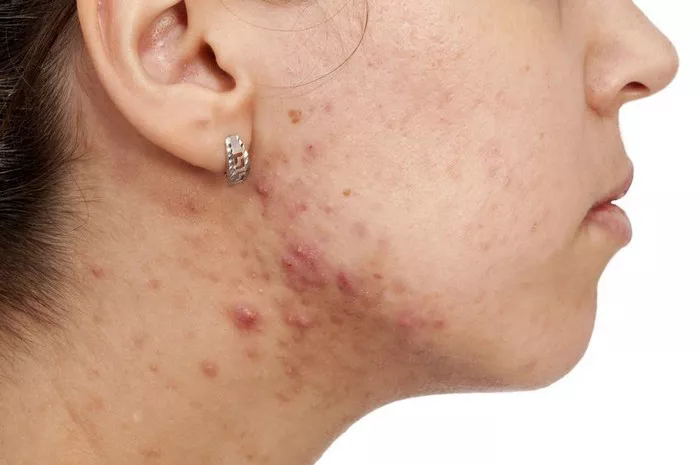One environmental factor that has garnered increasing attention is stress. In this article, we will explore the potential link between stress and HS flare-ups, discuss possible mechanisms behind this connection, and provide practical stress management tips to help individuals with HS better manage their condition.
SEE ALSO: How Much do you Know about Hidradenitis Suppurativa
Definition of HS
Hidradenitis Suppurativa is a chronic, inflammatory skin condition characterized by painful lumps, abscesses, and scarring.
Potential Link Between Stress and HS
There is growing evidence suggesting a connection between stress and HS flare-ups, but more research is needed to fully understand this relationship.
Possible Mechanisms
Stress may contribute to HS flare-ups through the effects of stress hormones, a weakened immune system, and a disrupted skin barrier.
Stress Management Techniques: Practical tips for managing stress include mindfulness, exercise, a balanced diet, and seeking professional help when needed.
Acknowledge the Potential Link
There’s growing evidence suggesting a connection between stress and HS flare-ups. Although the relationship is not yet fully understood, several studies have pointed to a possible link between psychological stress and the exacerbation of HS symptoms.
However, it is important to note that while these studies suggest a correlation between stress and HS, they do not definitively prove causation. More research is needed to fully understand the complex relationship between stress and HS. Therefore, it is crucial to approach this topic with caution and avoid making definitive claims about stress being a direct cause of HS flare-ups.
Explain Potential Mechanisms
While the exact mechanisms by which stress may influence HS are not yet fully understood, several potential pathways have been proposed.
Stress Hormones
One potential mechanism involves the role of stress hormones, particularly cortisol. Cortisol is a hormone released by the adrenal glands in response to stress, and it plays a key role in regulating the body’s immune response and inflammation. Prolonged or chronic stress can lead to elevated cortisol levels, which may, in turn, contribute to inflammation in the body. Since HS is an inflammatory condition, it is plausible that stress-induced inflammation could exacerbate HS symptoms.
Immune System
Chronic stress has also been shown to weaken the immune system, making the body more susceptible to infections and other health issues. In the context of HS, a weakened immune system could potentially lead to more frequent or severe flare-ups. The immune system’s ability to effectively fight off infections and maintain overall skin health is crucial for individuals with HS. When the immune system is compromised due to stress, it may not be able to adequately manage the inflammation associated with HS, leading to worsened symptoms.
Skin Barrier
Another possible mechanism is the impact of stress on the skin barrier. The skin barrier serves as the body’s first line of defense against external irritants, bacteria, and other harmful agents. Stress can disrupt the skin barrier, leading to increased skin sensitivity and vulnerability to infections. For individuals with HS, a compromised skin barrier could make it easier for bacteria to enter the skin and trigger or worsen flare-ups.
Provide Practical Stress Management Tips
Given the potential link between stress and HS flare-ups, managing stress is an important aspect of HS care. Here are some practical stress management tips that may help reduce the frequency and severity of HS flare-ups:
Stress Reduction Techniques
Mindfulness and Meditation: Mindfulness practices, such as meditation, deep breathing exercises, and progressive muscle relaxation, can help reduce stress and promote relaxation. Studies have shown that mindfulness-based stress reduction (MBSR) programs can be effective in managing stress and improving overall well-being.
Exercise: Regular physical activity is a proven way to reduce stress and improve mental health. Exercise releases endorphins, which are natural mood boosters, and can help alleviate symptoms of anxiety and depression.
Sleep Hygiene: Prioritizing good sleep hygiene is crucial for managing stress. Establish a regular sleep schedule, create a relaxing bedtime routine, and ensure that your sleep environment is conducive to restful sleep.
Healthy Lifestyle
Balanced Diet: A well-balanced diet rich in fruits, vegetables, whole grains, and lean proteins can support overall health and may help manage inflammation. Avoiding processed foods and reducing suupport from friends, family, or support groups can help alleviate stress. Talking to others who understand your experiences with HS can provide comfort and practical advice.
Conclusion
Managing stress is a critical component of living with HS. While the exact relationship between stress and HS is not fully understood, taking steps to reduce stress may help minimize flare-ups and improve overall quality of life.
Related Topics:


























